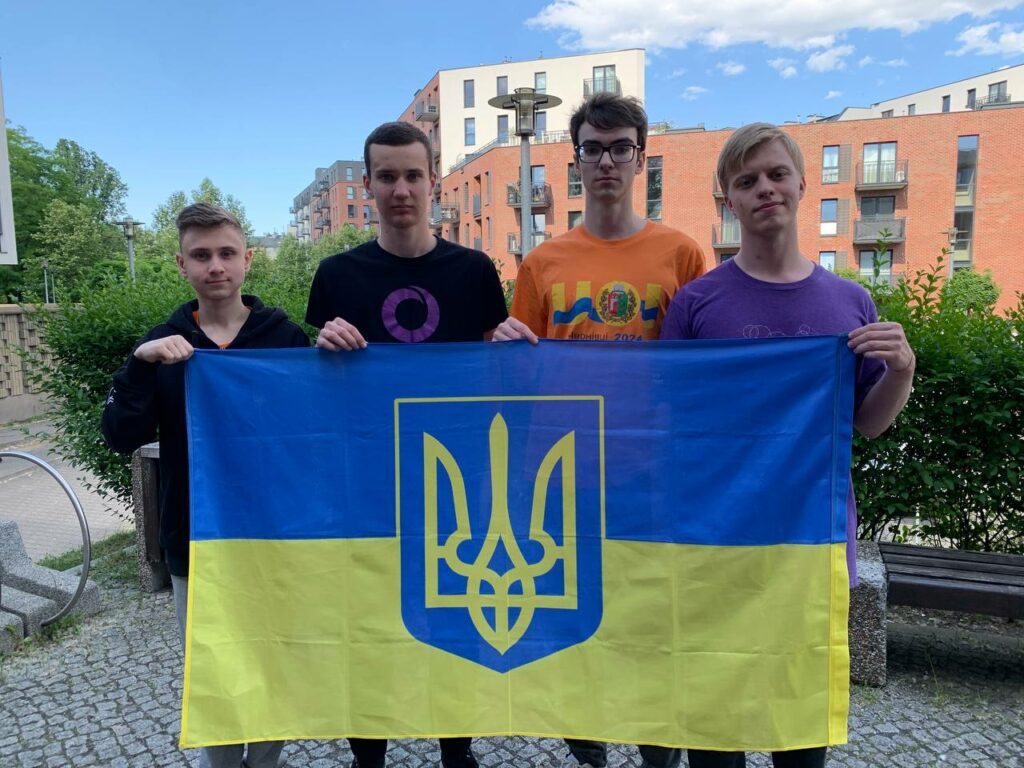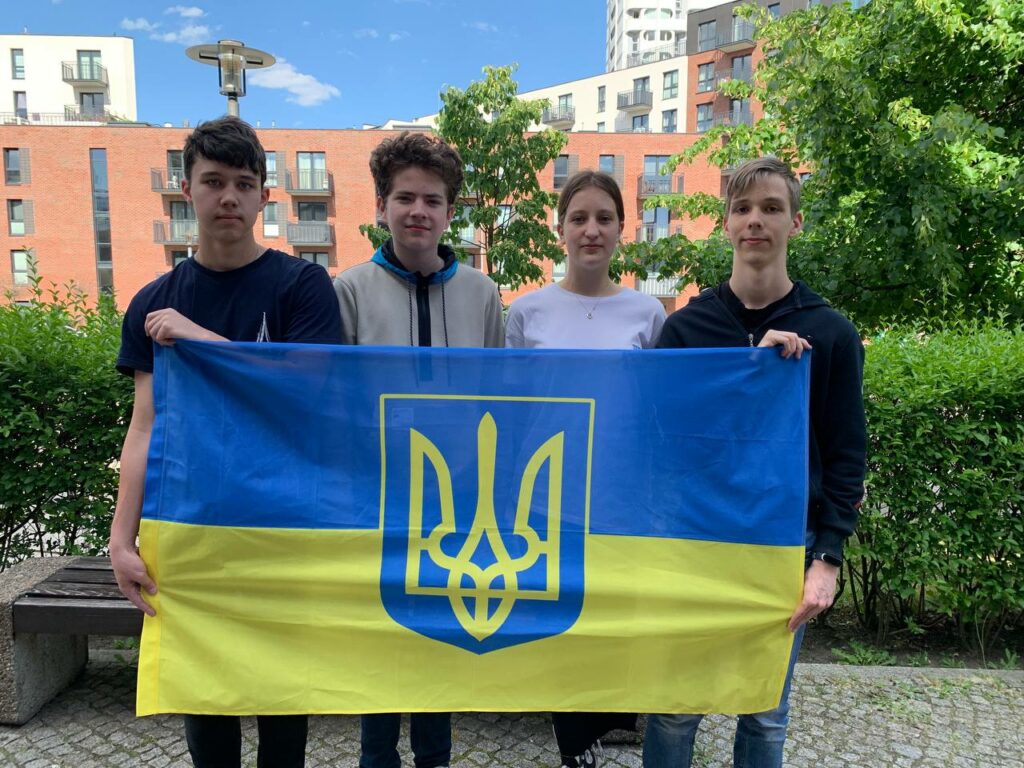From 10th to 16th May, Ukrainian Selection Camp for the IOI (International Olympiad in Informatics), BOI (Balkan Olympiad in Informatics) was held in Wrocław, Poland.
Thanks to University of Wrocław and gawry for the second time for help in organising the selections!
We are very grateful to Sergey Kolodyazhnyy for creating powerful online judge Eolymp.
Also, I would like to thank oleh1421 and kostia244 for preparing amazing problems. Maryna, Ilona and Melissa_14 for looking after the participants and Federation of Olympic Programming of Ukraine presented by arsijo for coordinating the entire process.
So, on IOI Ukrainian Team will be represented by:
- Andrii Smutchak(xGaz_) — 2nd time at IOI(IOI 23 Silver), 0 attempts left
- Ihnat Zharikhin(Ignut) — 1st time at IOI, 0 attempts left
- Denys Tereshchenko(TheQuantiX) — 1st time at IOI, 0 attempts left
- Illia Permiakov(160cm) — 1st time at IOI, 0 attempts left

Left to right: Illia, Ihnat, Andrii, Denys
And on BOI Ukrainian Team will be represented by:
- Maksym Shvedchenko(Umanity) — 1st time at BOI, 1 attempt left
- Valerii Kovnatskyi(Triseedot) — 1st time at BOI, 0 attempts left
- Daria Perekopska(perekopska.d) — 1st time at BOI, 1 attempt left
- Kyrylo Redenskyi(Relex) — 1st time at BOI, 0 attempts left

Left to right: Maksym, Valerii, Daria, Kyrylo
As usual some photos of our delegation included =) 


Good luck to them at the upcoming olympiads!












